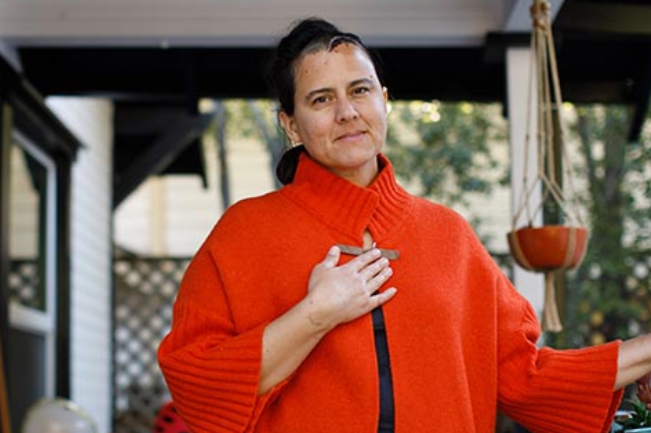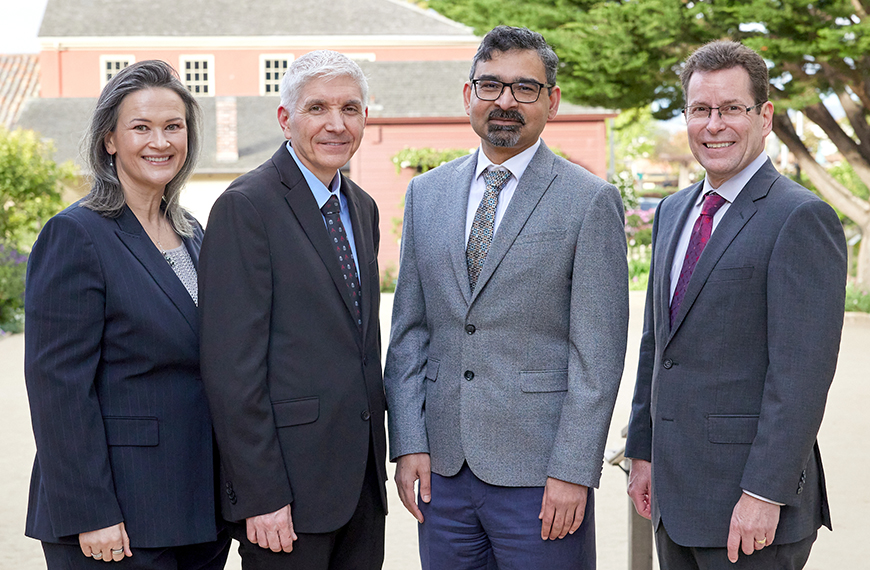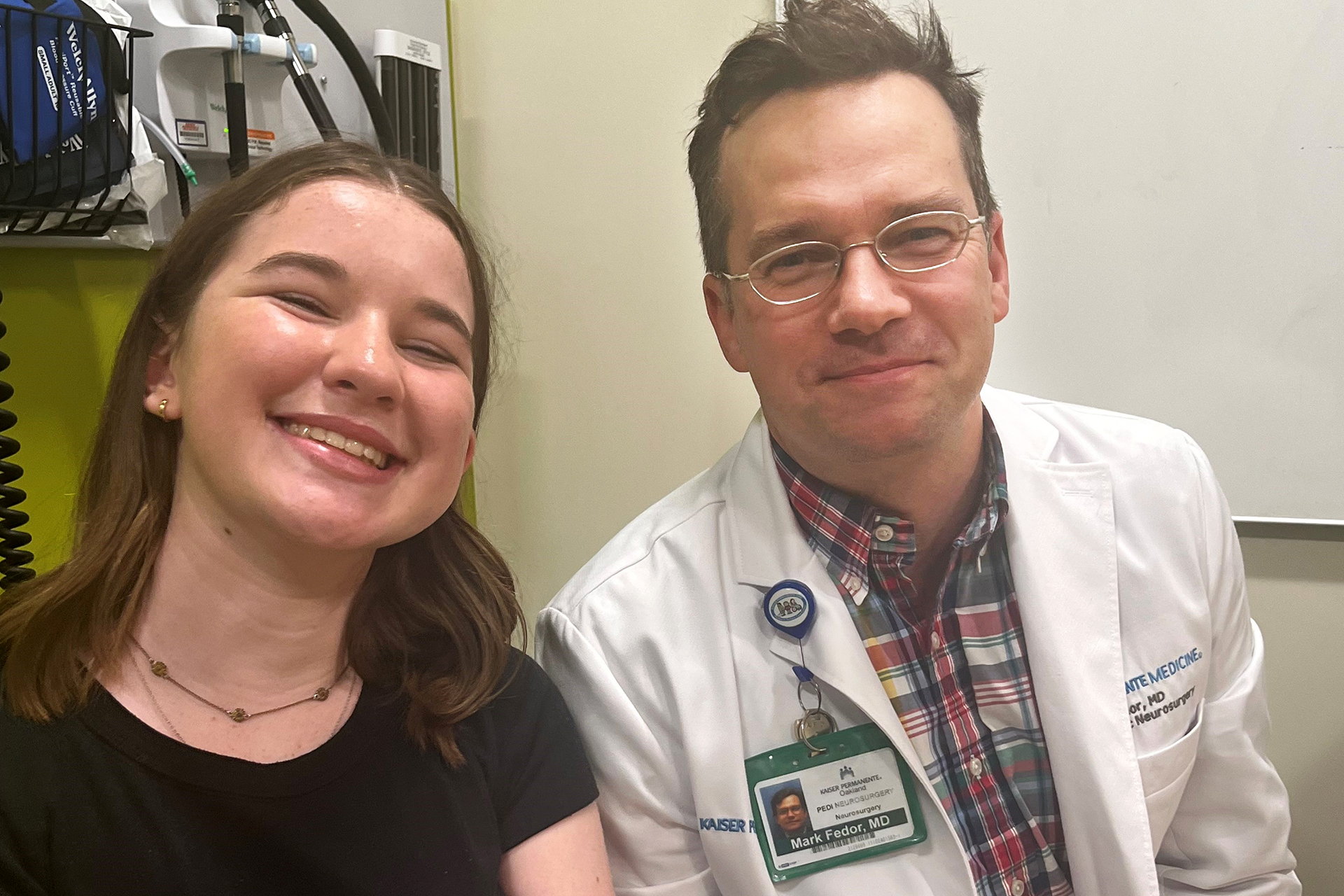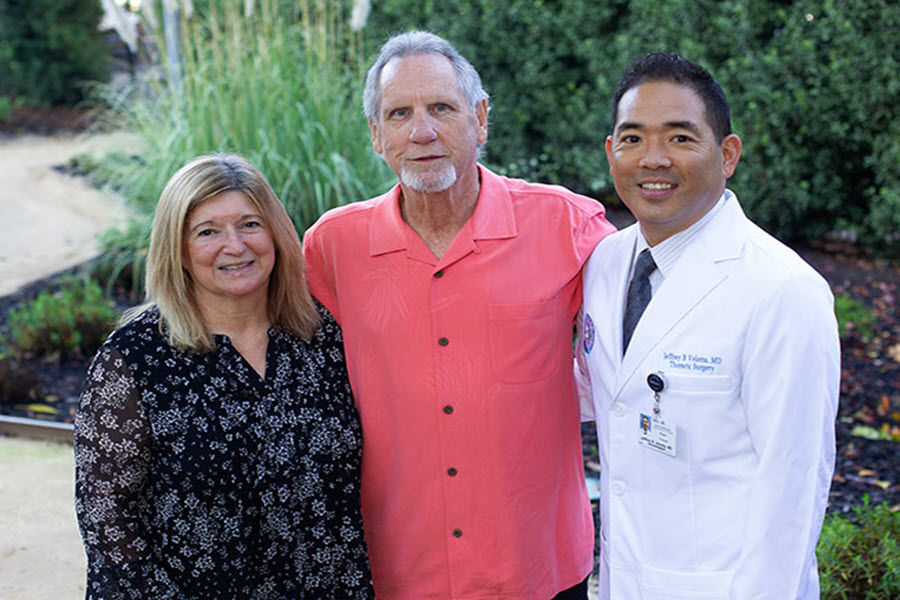July 9, 2021
Respect and compassion among staff at the Kaiser Permanente Redwood City Medical Center contribute to saving the life of a brain tumor patient.
“When you’re presented with your own death, you have a choice between fear or love,” said Kaiser Permanente member and brain tumor survivor Jessica Rios.
“What I saw on the 5th floor of the Kaiser Permanente Redwood City Medical Center gave me the strength to choose love.”
Rios’ journey into the center’s Neuroscience Intensive Care Unit began with excruciating, persistent migraines.
“I had level-10-pain migraines and started losing control of the right side of my body,” Rios explained. “I couldn’t write legibly. I couldn’t throw a Frisbee. My face started drooping to one side, and I couldn’t lift my right leg more than a few inches.”
Rios was referred to KP neurosurgeon Lewis Hou, MD, who made a shocking discovery: a benign tumor — the size of a fist — was lodged deep inside her brain.
“The tumor was large, exerting significant pressure on several parts of her brain,” said Dr. Hou. “In addition to loss of control over the right side of her body, it threatened her cognitive function and ability to communicate.”
The massive growth needed to be removed in order for Rios to regain her quality of life, but Dr. Hou explained that there was a catch. “Surgically manipulating an area that’s compromised always carries a risk,” said Dr. Hou. “Just freeing up the blood vessels from the tumor — the main concern is causing a stroke, especially when the tumor is that large.”
Rios’ love for her daughter gave her the courage to accept the surgery’s risk. She gave Dr. Hou her answer.
“I told him, ‘Let’s go,’” Rios said. “I clearly felt I could trust this man. He’s very compassionate. This is not just my life; I have a daughter and I want to live for her.”
“Deep down we’re all hungering to see harmony. We’re all longing to experience the kind of unity and respect that 5th floor showed me.”
Finding healing in diversity
The 9-hour surgery was a success, but Rios’ recovery in the Redwood City Medical Center’s Neuroscience ICU was equally critical to her survival and ongoing quality of life. There, she saw an entire medical team made up of racially, ethnically, and culturally diverse individuals treating their patients — and each other — with kindness and respect.
Rios said that diverse and compassionate culture ended up playing a pivotal role in her healing.
“My heritage is Puerto Rican, but I’ve lived most of my life in very white environments,” she said. “That was the most diversity I’d seen in a long time, starting with my neurosurgeon, who was born in Taiwan. To be on the 5th floor, with people from so many different backgrounds, I felt like the earth was holding me — this beautiful, diverse earth.”
Rios also drew a sense of trust from the compassionate way her care team members treated each other, especially when they disagreed. During shift change, Rios would overhear nurses exchanging information about her care. Occasionally, there were conflicting opinions. Rather than argue, “they heard each other out and listened to different perspectives,” Rios said. “The respect they conveyed to each other showed me I could trust them, because they could respect differences.”
Rios’ observations remind us of the ripple effect of our words and actions, and that caring for each other — regardless of whether we see eye to eye — matters just as much as caring for our patients and members.
After returning home, Rios sent an effusive thank-you card to Dr. Hou and the entire medical team. She thanked them for saving her life, and for the respect
compassion she experienced during her time in their care.
“Deep down we’re all hungering to see harmony,” Rios said. “We’re all longing to experience the kind of unity and respect that 5th floor showed me.”
This article originally appeared in MyKP.kp.org






